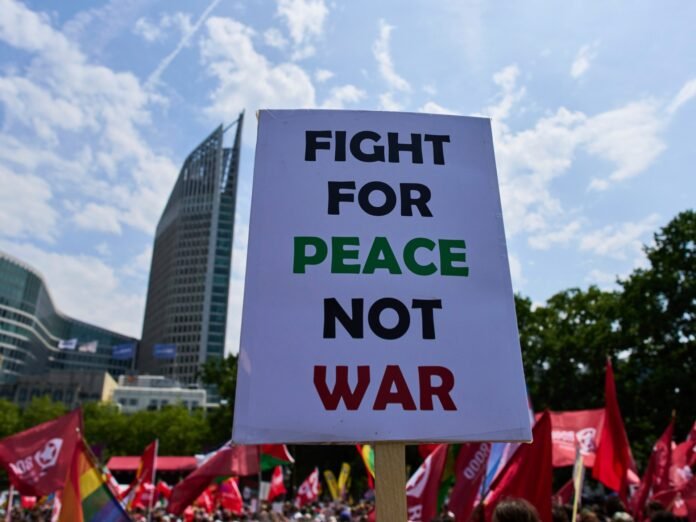NATO meeting will be held on Tuesday to discuss increased military spending in the shadow of Middle East conflict.
Hundreds of people have protested in The Hague, in the Netherlands, against NATO and increased military spending in advance of a summit, as Iran’s conflict with Israel and the United States intensifies by the day.
People demonstrated on Sunday against the military alliance, Israel’s punishing war in Gaza and the Israel-Iran conflict, hours after the US targeted three nuclear sites in Iran in a sudden escalatory move in support of its biggest ally in the Middle East.
Hossein Hamadani, 74, an Iranian who lives in the Netherlands, told The Associated Press news agency that they are “opposed to war”. “People want to live a peaceful life … Things are not good. So why do we spend money on war?” he added.
Following the US’s attack on Iran, an unnamed NATO official told the Reuters news agency that the alliance was watching the situation “closely”.
The summit is expected to kick off on Tuesday, with leaders of the 32 NATO-allied countries to meet a day later on Wednesday.
During the meeting, the heads of state will discuss an increase in defence spending, which has been repeatedly demanded by US President Donald Trump, along with thinly veiled threats to leave the military alliance.
On Thursday, Spanish Prime Minister Pedro Sanchez spoke out against the agreement to increase defence spending to 5 percent of national Gross Domestic Product (GDP) as not only “unreasonable but also counterproductive”.
In a letter to NATO Secretary-General Mark Rutte, Sanchez asked for a “more flexible formula” that either makes the spending target optional or excludes Spain from its application.
But Trump said a day later that Madrid was “notorious” for underspending on defence and said it needed to pay what other NATO members were paying.
The allied countries have ramped up defence spending since Russia invaded Ukraine more than three years ago; however, almost a third of the members still do not meet the bloc’s current target of at least 2 percent defence spending.






